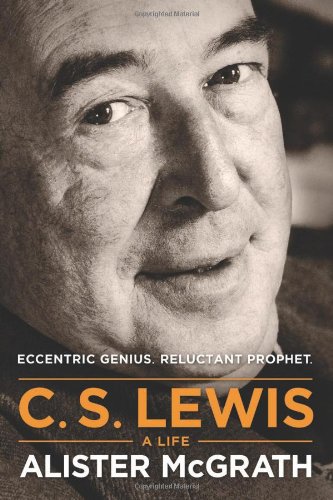Ben: I was reading along on p. 70, and read these lines from Lewis “Whenever you are fed up with life, start writing: ink is the great cure for all human ills”. A line you give in the context of discussing his war poems. I have to say this certainly corresponds with my own experience when we suddenly lost Christy our eldest child at 32 to a pulmonary embolism. My way of coping was to write a poem about this, and then reflections on grieving entitled ‘When a Daughter Dies” which apparently has helped various grieving parents. It would appear then, that since poetry is sometimes ‘the sound of the soul’ that Lewis allowed in the outside reality enough during the war for it to affect his verse. While I agree that poetry was not Lewis’ greatest literary skill or talent, his poetry has often made me think that even in the case of great writers, they often are oblivious to their best skills, and no good evaluators of their own abilities. Would you agree?
Alister: Lewis hoped to be remembered as a “war poet.” That hasn’t happened, although it’s hard to avoid noticing the poetic quality of Lewis’s prose, which may help explain why so many enjoy his writings. Yet Lewis kept on writing poetry in the 1930s and beyond, with no obvious expectation of publication. They were written, it seems, for his own enjoyment – and, as I think we can see at several points (such as the poem he penned after the death of Charles Williams in 1945), to help him cope with his own sorrows and pain. One of the things I realized on reading his entire correspondence was that Lewis was often deeply unhappy, and found writing about his concerns a way of dealing with them. I don’t think we were ever meant to know about some of the things he wrote – but now that they are public, we can see how Lewis put into action time and time again that truth he discovered during the Great War. “Whenever you are fed up with life, start writing.”
I read about your daughter’s death, and really felt for you. That’s never happened to me, but it’s been an experience that some of my friends have been through. And, like you and Lewis, they’ve found keeping journals or writing letters about their experiences to be very helpful. It allows them to put into words things that might otherwise keep on echoing in the caverns of their minds and memories. Have you read Nicholas Wolterstorff’s Lament for a Son? It’s about the death of his son in a climbing accident. It’s deeply moving, yet at the same time gives his readers permission (so to speak) to think about their own experiences, and come to terms with them. Wolterstorff is one of our best philosophers of religion. But I think this might be his best book.
Ben: Yes, I am familiar with that book, and some are saying my little offering is a helpful second lens through which to see this sort of tragedy. All I know is, my little offering struck a nerve, especially the chapter on ‘Things not to Say to the Bereaved’.













